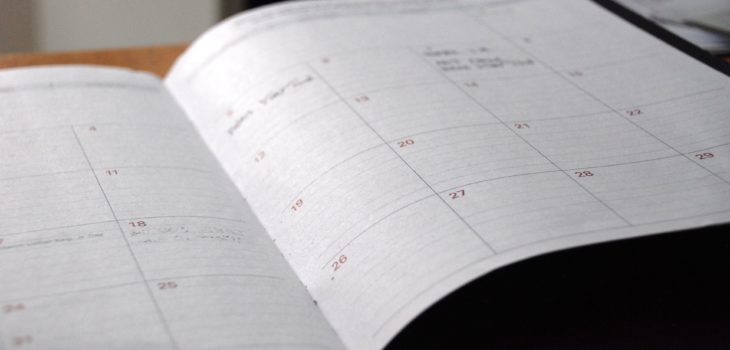
What’s the date? Sometimes, you don’t need to know
“What’s the date today?” my friend asked. I sighed as I replied, “I don’t know,” and reached for my phone to check.
“Isn’t that great?” he asked. He was referencing the fact it was a Monday and neither of us had to work or know the date. He’s retired, and I work flex hours part-time. Neither of us have to know the date most of the time. I usually get by on knowing the day of the week.
The funny thing is, I’ve kind of always been this way, thanks to my career as a journalist.
Dates in advance
Except for very early in my career when we actually published mid-morning the day we delivered, I always was working a day or two or more ahead, on what we called advance deadlines.
Newspapers publish once a day, typically – unless you’re a big-city paper with “editions” that come out at different times, including updated information on a few pages while the rest remains the same. Most newspapers go to press overnight, so the paper is delivered by morning. The thinking is less news happens overnight, and readers want the freshest content possible.
Toward the end of my career, news deadlines were later in the day. Sports had the latest time slots, due to evening game coverage. We’d “put the paper to bed” between 10 p.m. and midnight. I’d be home myself by then, after working the day shift. The news content I was responsible for was ready to go by about 6 p.m.
I always worked a day in advance, at least. On Monday, it was copy for Tuesday’s paper. On Friday, it was content for Saturday, Sunday and Monday papers, since most of us didn’t work weekends. (A reporter, the copy desk and sports would make up the skeleton crew on weekends.) Of course, all the content for those newspapers was based on the date of publication, so I actually had a lot of days and dates in my head all the time. But it wasn’t today.
If I had to stop at a store and write out a check (remember when?), I’d rarely know the actual date, even though I’d been working with days and dates all day. It took longer to count back from Monday’s date than to ask the clerk for the information.
Knowing the date
When I worked for assisted living, I got a little more in touch with a calendar, particularly when I’d total time cards twice a month. Later, when I took on scheduling duties, I knew the days and dates every month very well. I could tell you which days of the week were the 1st, 5th, 15th, 20th and month end, as well as which days were Mondays. Then, the other numbers would fall into place. It was easy enough to keep that calendar in my head without needing to look at it.
Leaving that environment, though, meant I really didn’t need to know the date, and I’ve slipped into my old habit of not really knowing – or caring.
I did, however, finally put my travel dates for Portugal into my calendar – and my head. Now when people ask me, I can give them an actual date, rather than a vague answer involving months. I decided I shouldn’t be wishy-washy about those dates. They will come (and go) soon enough.
So while I may not be able to answer what’s the date today, I can tell you the date I’m moving to Portugal. Somehow, that seems appropriate.
Be a Better Writer Tip
I wrote some about deadlines today and working on newspaper content in advance of its publication date. As an editor, I was responsible for a variety of content, including lifestyle and community content, which tends to be feature-related. In other words, it’s content that be printed any time – it’s not so timely that it needs to get to readers immediately. News content – meeting coverage, important news, breaking news — would get into the next day’s edition and on the website as soon as possible.
You might think as a blogger I don’t have deadlines, but that’s not necessarily true. I know how often I wish to publish, and I plan accordingly. Often, I have several columns ready to go. The beauty of most of what I write now is it isn’t timely, like breaking news. Instead, it can sit for a week, a month or more and still be relevant. Likewise, once it’s published, it still will be of interest to readers a month, a year or longer from when it was written.
I schedule columns sometimes because I want them to publish at a certain time, and I schedule the emails that go to subscribers. Most of my social media posts can be scheduled, and even Facebook, which I can’t schedule in advance, is planned to post at the best time possible.
I’ll share more about deadlines and the importance of them in future tips, but for now, start to think about your own deadlines. Do you have times set for yourself to complete your writing or post your content? If you write for work, you’re familiar with deadlines. If you write for yourself, deadlines can help you stay on track with what you need to accomplish.



